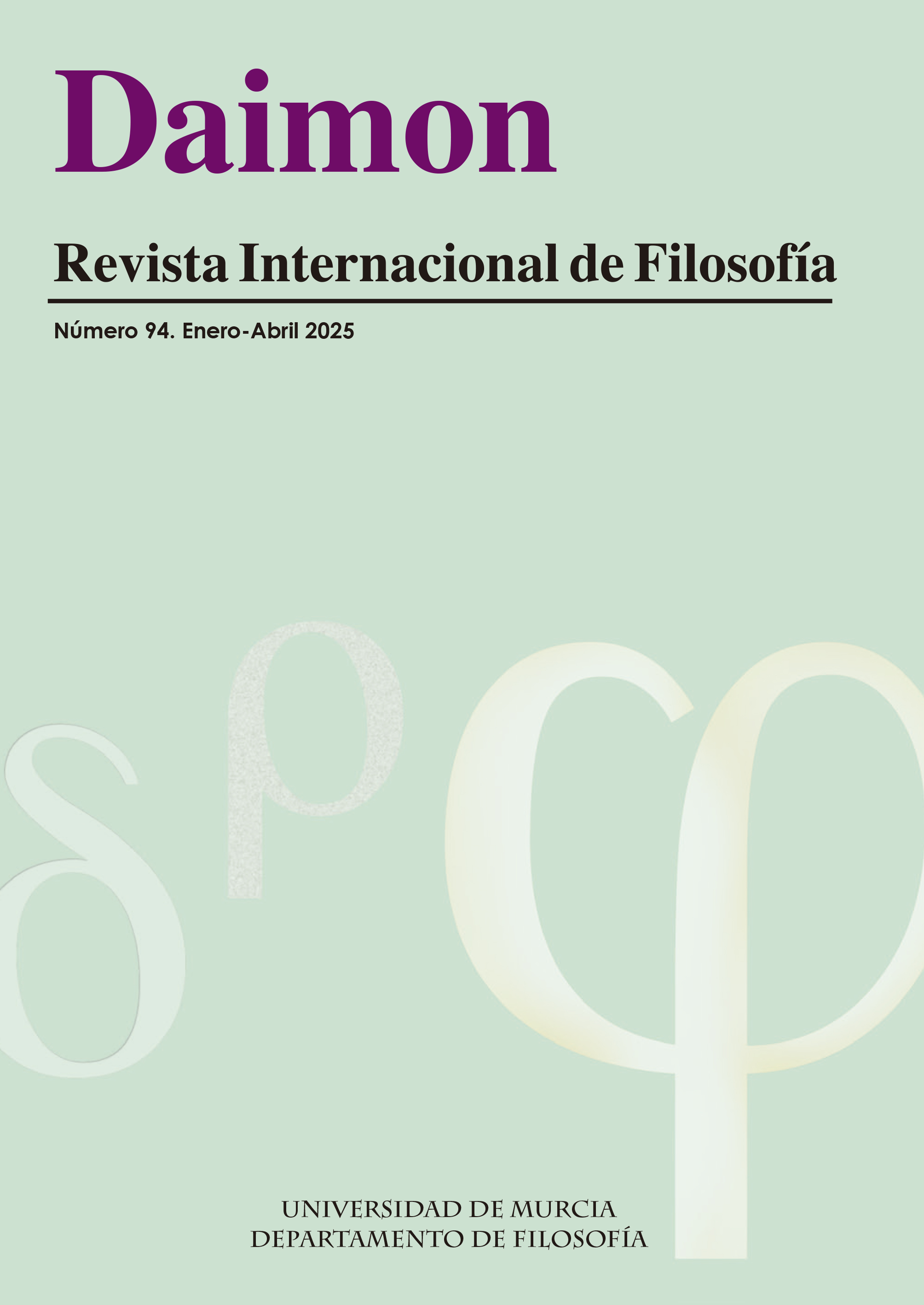On the Intentionality of Shame and Pride
Agencias de apoyo
- This work has been supported by the research projects PID2019-106420GA-I00 and PID2020-119588GB-I00 and by the grant BES-2017-081537 funded by MCIN/AEI/10.13039/501100011033 and “ESF Investing in your future”.
Resumen
ABSTRACT
This paper argues against the widely held view according to which the main difference between shame and pride, and the rest of our emotions – such as fear, hate, surprise, joy or jealousy – is that the former are necessarily directed at the self as the intentional object of the emotion while the latter are typically oriented towards objects in the world other than the self. I examine three arguments in favour of this view and claim that further arguments should be provided in order to show that shame and pride are necessarily directed at oneself – the doer – rather than at an object different from the self – the deed.
RESUMEN
Este artículo cuestiona la concepción ampliamente aceptada según la cual la principal diferencia entre la vergüenza y el orgullo, y el resto de nuestras emociones —miedo, odio, sorpresa, alegría o celos— es que las primeras se dirigen necesariamente al yo como objeto intencional de la emoción, mientras que las segundas se encuentran típicamente orientadas hacia objetos del mundo distintos del yo. Examino tres argumentos a favor de esta concepción y sostengo que el defensor de la misma debería aportar nuevos argumentos que muestren que la vergüenza y el orgullo se dirigen necesariamente a uno mismo —el agente— y no a un objeto distinto del yo —el acto.
Descargas
-
Resumen297
-
PDF 162
-
HTML 62
Citas
Corbí, J. E. (2012). Morality, self-knowledge and human suffering: an essay on the loss of confidence in the world. Routledge.
Corbí, J. E. (2016). Self-knowledge, deliberation, and the fruit of Satan. Acta Analytica, 32(2), 245–26.
Deonna, J. A., Rodogno, R. & Teroni, F. (2012). In defense of shame: the faces of an emotion. Oxford University Press.
Deonna, J. A. & Teroni, F. (2012). The emotions: a philosophical introduction. Routledge.
Dunn, R. (2006). Values and the reflective point of view: on expressivism, self-knowledge and agency. Routledge.
Eliot, G. (1871). Middlemarch. Wordsworth Classics.
Goldie, P. (2000). The emotions. Oxford: Oxford University Press.
Helm, B. (2001). Emotional reason: deliberation, motivation, and the nature of value. Cambridge University Press.
Kenny, A. (1963). Action, emotion and will. Routledge.
Moran, R. (2001). Authority and estrangement: an essay on self-knowledge. Princeton University Press.
Shand, A. (1918). Emotion and Value. Proceedings of the Aristotelian Society, 19, 208–235.
Tappolet, C. (2016). Emotions, values and agency. Oxford: Oxford University Press.
Tietjen, R. R. (2020). The emotion of self-reflexive anxiety. Journal of the American Philosophical Association, 297-315.
Teroni, F. (2016). Emotions, me, myself and I. International Journal of Philosophical Studies, 24, 433-451.
Tracy, J. L. & Robins, R.W. (2007). The self in self-conscious emotions: a cognitive appraisal approach. In J. L. Tracy, R. W. Robins & J. P. Tagney (Eds.), The self-conscious emotions: theory and research (pp. 3–20). The Guildford Press.
Wiggins, D. (1987). Needs, values, truth: essays in the philosophy of value. Oxford: Blackwell.
Zinck, A. (2008). Self-referential emotions. Consciousness and Cognition, 17, 496-505.
Derechos de autor 2024 Daimon Revista Internacional de Filosofia

Esta obra está bajo una licencia internacional Creative Commons Reconocimiento-NoComercial-SinObraDerivada 3.0.
Las obras que se publican en esta revista están sujetas a los siguientes términos:
1. El Servicio de Publicaciones de la Universidad de Murcia (la editorial) conserva los derechos patrimoniales (copyright) de las obras publicadas, y favorece y permite la reutilización de las mismas bajo la licencia de uso indicada en el punto 2.
2. Las obras se publican en la edición electrónica de la revista bajo una licencia Creative Commons Reconocimiento-NoComercial-SinObraDerivada 3.0 España (texto legal). Se pueden copiar, usar, difundir, transmitir y exponer públicamente, siempre que: i) se cite la autoría y la fuente original de su publicación (revista, editorial y URL de la obra); ii) no se usen para fines comerciales; iii) si remezcla, transforma o crea a partir del material, no podrá distribuir el material modificado.
3. Condiciones de auto-archivo. Se permite y se anima a los autores a difundir electrónicamente las versiones pre-print (versión antes de ser evaluada) y/o post-print (versión evaluada y aceptada para su publicación) de sus obras antes de su publicación, ya que favorece su circulación y difusión más temprana y con ello un posible aumento en su citación y alcance entre la comunidad académica. Color RoMEO: verde.











